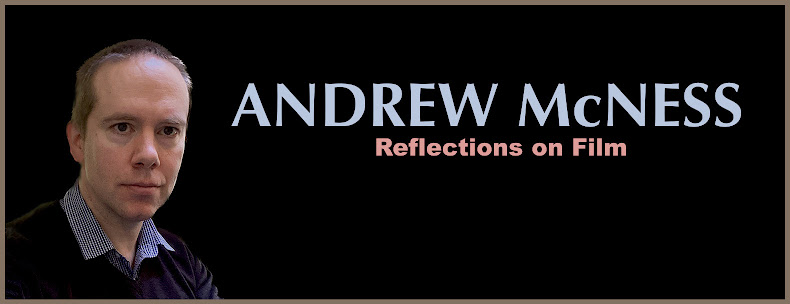There are some trade-offs you can
never anticipate.
Harrison Ford was approached to appear in 2014's high-octane actioner, The Expendables 3, when Bruce Willis'
asking price proved galling. Lose Willis, gain Ford. Tears of frustration
turned to tears of joy, as series progenitor, Sylvester Stallone's Twitter
postings demonstrated. The circumstances were reminiscent of that famous, if not
infamous, turn of events where Alec Baldwin, flexing his star muscle with
Paramount Pictures, promptly lost the Jack Ryan character when an actor by the
name of, oh, Harrison Ford expressed an interest. But The Expendables 3 is an odd addition to Ford's body of work. It
doesn't quite fit. And in the lack of fit, it seems a relief that Ford's appearance amounts to a
glorified cameo, lest the film be quoted on his resume too regularly.
Like its predecessors, The Expendables 3
is a jam-packed showcase of famous Hollywood action stars of yesteryear; these
big "who's who?" casts are the series principal novelty. Perhaps
tellingly, Ford noted that he had never seen Expendables 1 and 2
before signing onto Part 3. Perhaps it felt a good move to join the financially
successful Taken/Red/Expendables
bandwagon of ageing superstars in "hard" actioners. And it came with
a pre-sold audience and only required a small number of days’ work in Bulgaria.
Why not?
The first front-on view of Ford, at the film's 28-minute mark, is
discombobulating: in an immaculate suit and with a slightly apprehensive air,
one is instantly transported to director Phillip Noyce's Jack Ryan universe,
where Ford essayed the CIA analyst / reluctant "man of action" on two
occasions. And in Noyce's universe violence carries consequence (look no
further than the brilliantly simple and haunting satellite sequence in
1992's Patriot Games) and
victory is achieved without an air of "gung-ho" triumphalism (see
Ford's expression after defeating his principal foe in said film).
The Expendables has a
different attitude to violence, though, and the third film has already well
demonstrated this by the time Ford appears. While the violence is similarly
rough, it's depicted with an unrelenting "kill 'em all" stridency and
a "no remorse" code of masculine conduct. The killing is ample (to
say the bloody least) and bullishly creative, a fair reflection of Stallone,
Schwarzennegger, Lundgren, et al.'s back catalogue. But it's barely reflects Ford's accumulated work.
Until Ford joins the fray in the big finale, he sits outside the film's baser
instincts, almost a beacon to other films you might prefer to be seeing. In
total, Ford's filmography presents a very different attitude to violence (it's
not just the Ryan films): where the films got rough, they got moral, and where
the body count was high, the action was bloodless and cartoonish, with a strict
minimum of yahoo-ing to accompany the killing.
Still, it's interesting to see Ford navigate and exist within the Expendables universe,
particularly in his aforementioned first scene, a stand-off with Stallone. Observing Harrison play with the stockstandard blustery action
dialogue is unusually compelling. And again, the evocation of Ryan is there: a
disarmingly smiley and amenable delivery soon dissolves towards a simmering
rage, as if, in this confrontation, he is dealing with no less than The President of
the United States himself, a la Clear and
Present Danger (1994). The dialogue and delivery could also play as a light parody
of his powerful and affecting "I understand why he's doing what he's
doing" piece from The Devil's Own (1997).
Ford's appearances in The
Expendables 3, though, cannot overcome the basic formula of excess. And, I
suppose, nor should they. Stallone has been extremely successful with films
that trade on a certain excess; for instance, Rocky IV (1985) may not be a great sequel to the
"delicacies" of the original, but as a comic book film, it is
supremely effective and carries an emotional resonance. The Expendables films, though, feel a little
too complacent in their formula, and seem to offer little beyond the brotherly
ribbing and macho bloodletting - although their central villains have been
terrific: Mickey Rourke for part 1, Jean-Claude Van Damme for Part 2, and Mel
Gibson for Ford's instalment. (Oh, that Ford and Gibson could have shared some
screen time.)
So, where does Ford's filmography intersect with these "Soldier of
Fortune" preoccupations? Ultimately it's all about Han Solo, with Ford, in sky machine, performing some unexpected
aerobatics in the film's final reel; Ryan, alas, by this stage has all but disappeared. (Solo's famous "Let's blow this thing
and go home" line must have been a temptation, but placed alongside
Schwarzenegger's "Get to da chopper!" would perhaps be a bit much.)
And when Mel Gibson's villain reflects on his days as an Expendable, he
remarks, "We killed a lot. But we saved more lives than you can possibly
imagine," which might be a natural justification of any character
associated with The Rebellion of the Star
Wars films.
At the end of the day, it was great to see the cast assembled at the Cannes
Film Festival (there's your chance to see Ford and Gibson cross paths). It also
seems appropriate that Ford should appear in the installment that is almost
entirely bloodless: with all the star power on show, Stallone decided not to
add the post production viscera in the hope of capturing a broader audience.
Box office-wise, the plan seemed to backfire, suggesting that if you're going
to decimate hundreds you might as well throw discreetness to the wind. (Of
course, the box-office woes might also have something to do with an online leak
that occurred prior to the film's release). In any case, we have been promised
the technicolour gore will return with Part 4. Ford, I imagine, will steer well
clear of the film: photographic evidence reveals he attended the Hollywood
premiere of The Expendables 3 and, unless he nicked out an exit prior to the screening, he has now
seen an Expendables film.
Published 26 October 2016

